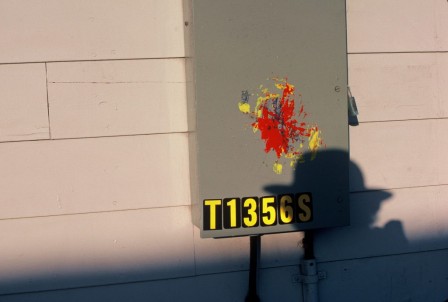Global Land Grab: The New World Order Of The Shadow Market
Eric J. Weiner is a serious writer and journalist who has contributed for publications such as Dow Jones Newwires, the Wall Street Journal and the Los Angeles Times. His new book, “The Shadow Market: How a Group of Wealthy Nations and Powerful Investors Secretly Dominate the World” sounds a lot like a line New World Order conspiracy theorists would used. However, Weiner articulates his claims in a completely rational and very documented way.
Weiner demonstrates, in his book, that the strongest force in global commerce today is not the US Federal Reserve, not the international banks, not the governments of the G7 countries, and not the European Union. Instead, it is the multi-trillion-dollar network of super-rich, secretive and largely unregulated investment entities- namely foreign sovereign wealth funds, government-run corporations, private equity funds, and hedge funds- that are quietly buying up the world, in large valuable chunks.
Unlike Wall Street, or others world financial markets, the shadow market does not have a physical headquarter. It does not have a formal leadership either. Instead, it is composed of an ever shifting global network where very large amount of money flows very fast, and mixes with geopolitical power and long term policy objectives. Needless to say, the national big players of the shadow market are cash-rich nations such as China, Kuwait, Abu Dhabi, Saudi-Arabia, Singapore and Norway.
The Great Recession is turning out to be a great advantage for the shadow market, due to the lack of liquidity available in both the United States and the European banking systems. The shadow market big players are spending huge amount of cash, controlling the capital market, and securing not only a massive amount of shares in multinational corporations, but also huge tracts of farmland and natural resources across the world.
Eric J. Weiner was interviewed yesterday by Bob Moon for the public radio show Market Place. Moon asked Weiner to define the shadow market, and what could be its geopolitical impact.
“What you have is countries that have digested the lesson of the market, and that, is that you gain control over things and you have a much greater opportunity to create the returns. So, what you are seeing is massive land grabs going on in Africa and other developing nations, because many of these rich countries have concerns about their natural resources, and about their food supply. They are basically going in, cutting deals by offering them very low-interest loans or outright giving them grants money, whatever it is, and they are in effect, creating a new colonial system,” said Weiner.
Further in the interview, when asked about the role of China, one of the biggest players in the shadow market, Weiner explained how the shadow market is likely to alter our current geopolitical predicament.
“China builds allies with other countries that we would like influence in. And it is not just China. For example, Saudi Arabia owns a farm the size of the state of Connecticut in Indonesia, and they are going to grow crops that are in demand in Saudi-Arabia. This create a natural ally between Saudi-Arabia and Indonesia in ways we can not even comprehend, because we are not participating in this,” said Weiner.
To hear or read Weiner’s interview on Market Place click here.
Editor’s Note: Photograph by Gilbert Mercier.
Related Articles
One Response to Global Land Grab: The New World Order Of The Shadow Market
You must be logged in to post a comment Login














Pingback: Jutia Group